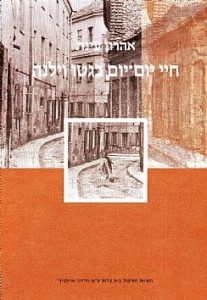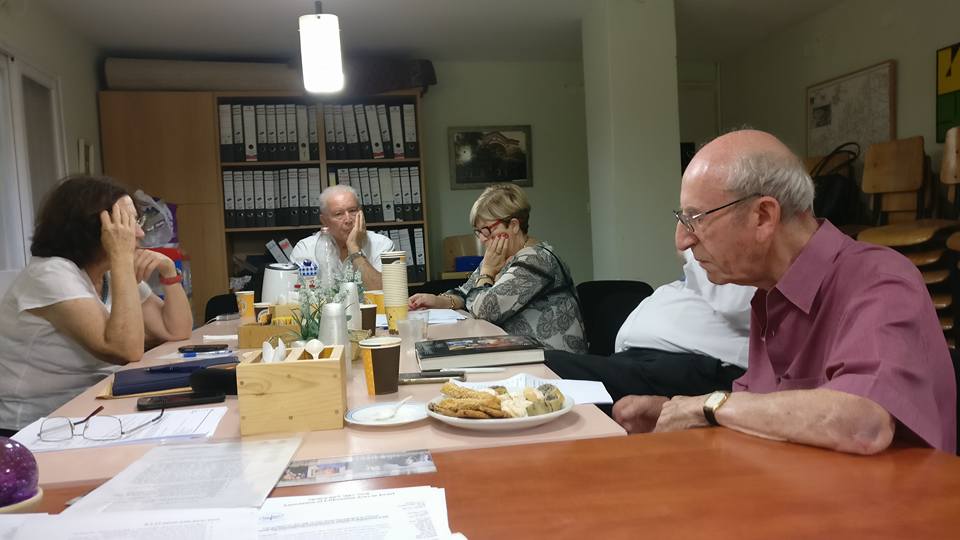Dr. Aharon Einat, Everyday Life in the Vilna Ghetto 2017
Aharon Einat (Zalkind) was a 7-year-old boy when the Germans occupied Vilna. His childhood years were spent in the ghetto and in hiding places together with his mother, brother and other family members. For years, he repressed this childhood trauma and only in old age, when he was already a father and grandfather to grandchildren, and after a long career in the IDF, he decided to return to the past and explore life in the Vilna Ghetto, one of the largest and most famous ghettos of World War II.
His book: "Everyday Life in the Vilna Ghetto" is based on a doctoral dissertation, using extensive documents from leading archives in Israel and worldwide, and the testimonies of survivors. Although much has been written about the organization of the underground in the ghetto and the youth movements, literature does not describe the Vilna Ghetto’s daily life in all its aspects - education, health, culture, religious life, employment, smuggling, internal legal mechanisms, mutual aid, as well as adverse effects, present in a society living under inhumane conditions and the uncertainty of what the next day would bring.
At the beginning of the book, Einat candidly tells his personal story, and that of his incredible rescue; and in the appendix, writes about the testimony taken from him as a child immediately after the war, which he had forgotten and was revealed to him in an archive in Poland.
To the shelves heavy with "Holocaust books," this book adds an original and fascinating look at an unfamiliar and thought-provoking chapter, not only about the lifestyles of Vilna Ghetto Jews, but also on the behavior of people under siege and oppression, on moments of compassion and grace in the shadow of death, and inconceivable evil.
"This book reflects new trends in Holocaust research - an effort to focus on the socio - economic aspect of the ghetto and the daily routine of Eastern European ghettos ... Einat focuses the discussion on questions of common destiny and solidarity in a society that is nothing but the remnants of a community living in forced reality. He emphasizes the difficulty of shaping solidarity in conditions of expulsion, dispossession, isolation and the constant fear of being murdered, on the one hand, but also the necessity of shaping such solidarity, on the other, and the tensions such contradictions arouse ... Ghetto residents and its leaders made great efforts to formulate a responsibility that meant joint organization for the preservation of life, without ignoring acts of harm to others and lack of mutual help.” Prof. Dalia Ofer, The Hebrew University of Jerusalem.



